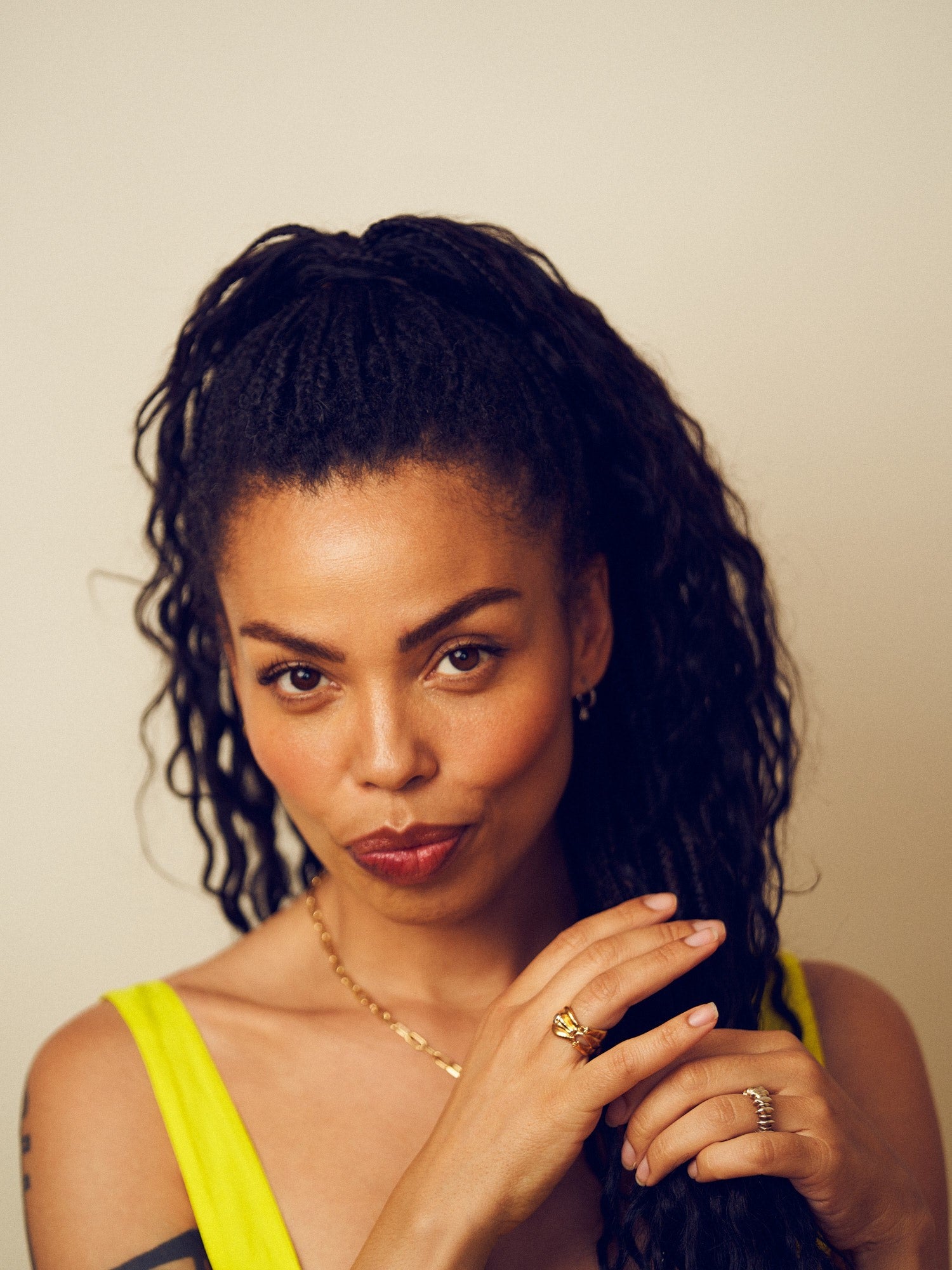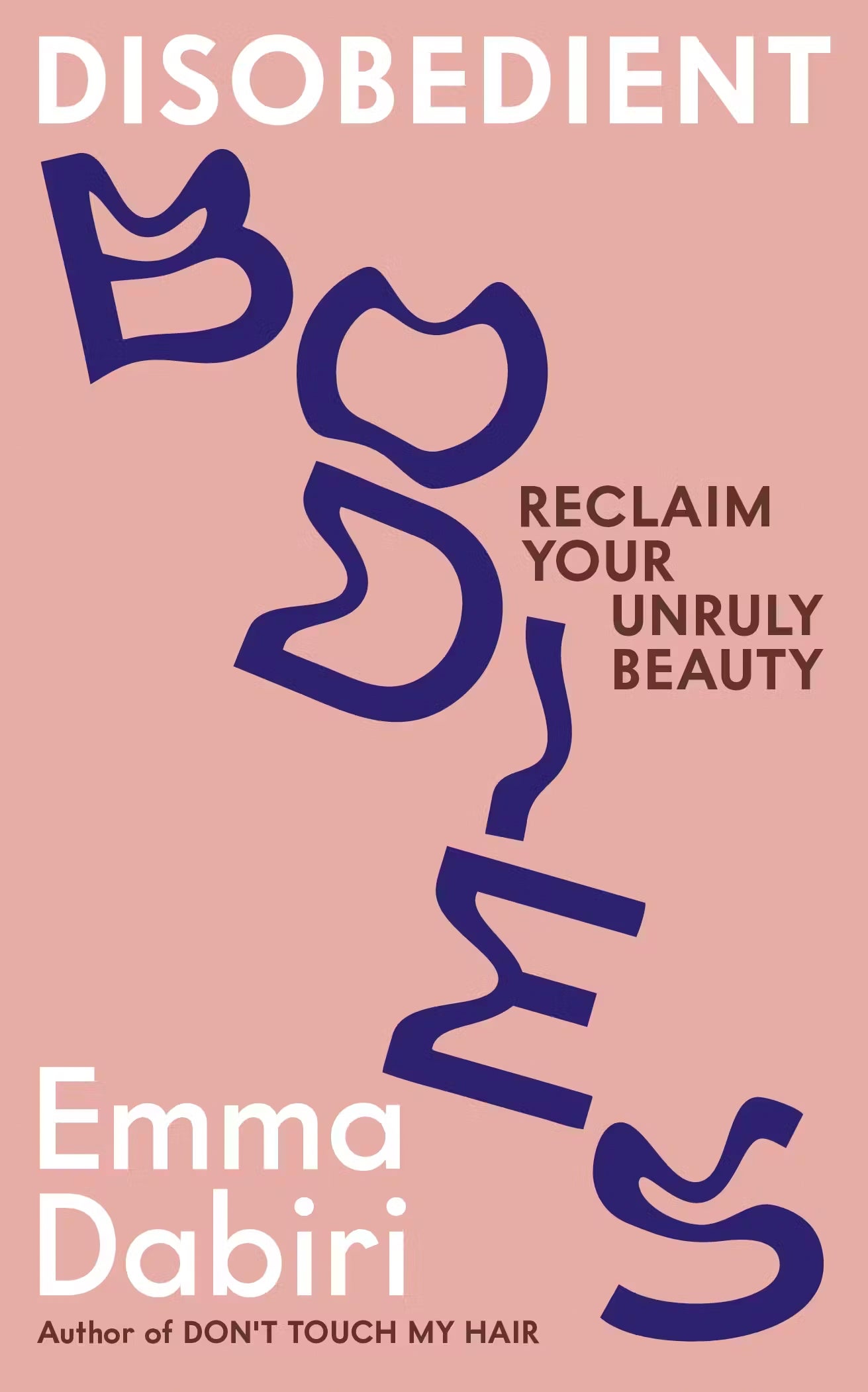My boyfriend was asked: ‘OMG! What is it like to kiss a Black girl?’
Growing up in Dublin with an Irish mother and Nigerian father, Emma Dabiri spent years feeling that she didn’t fit in. But, enough, she says: the time has come for women to stop trying to conform and embrace our ‘disobedient’ bodies

Growing up in Dublin in the Nineties, I looked very different from everyone else. Back then, the beauty standard was to be blonde and extremely thin. If you had blue eyes, even better, and the only place any fat was permitted was your boobs. Born to an Irish mother and Nigerian father, I was far from this perceived ideal, and often the only Black girl in my social group, I got used to being the object of intense scrutiny.
My afro-textured hair, bum and thighs were a different shape from those of everyone around me. I was bullied about the size of my mouth and the shape of my lips. It’s ironic that many of the features I was teased for are the same ones people try to reproduce today cosmetically. Back then, being called nasty names was par for the course.
There was inordinate pressure for all women to look a certain way, but on top of that, I had racism to deal with too. From about 14, I became aware of the potent ideas about the sexual availability of Black women and got used to fetishisation and sexualised comments from those around me.
In my teens when everyone wore boob tube dresses I borrowed my friend’s and one of them turned around to say: “Oh my God, Emma looks like a prostitute.” The underlying message was clear – when I dressed like that, the shape of my body made me look like a “prostitute”, but for my white friends it was just a cute dress.
Flashers targeted me from an even younger age – they certainly weren’t unique to me, but it did seem to happen rather a lot. As I got older, boys would say things to me like: “You’re actually pretty for a Black girl”. It was meant to be a compliment, but it really was an insult. So too comments from guys who said things like: “I wouldn’t normally date a Black girl – but I would make an exception for you.” I’d be like: “Please leave me alone.” I remember one of my boyfriends telling me his friends kept asking him “OMG, what’s it like to kiss a Black girl?” I have no idea how they thought he was meant to answer that.
The constant commentary, scrutiny, projection and assumptions were exhausting, and I developed coping strategies. What came across as standoffishness to others was, in fact, just shyness born from feeling self-conscious and insecure. Feeling alienated and isolated, nobody else understood. When I tried to talk about how uncomfortable I was feeling, it was batted away with: “Be grateful for the attention.”
Navigating it all was difficult and taming my body to fit in was all I knew. It was also the era of “heroin chic”, so a lot of my time was spent trying to be thin. It wasn’t about being healthy. It was about being unhealthy, dieting instead of exercising. I’d eat Chupa Chups because they didn’t have calories but would give me a sugar rush, while not caring what all that sugar did to my teeth. So many of my friends had eating disorders – all of us trying to force our bodies into an impossible ideal. I was caught up in a cycle where I was never happy with the way I looked and there was always something that could be improved.
Pilloried for not making enough of an effort but dismissed as shallow and silly if you were spending too much time on your appearance, I learnt the hard way that not fitting in isn’t something you easily grow out of. It was a feeling that would follow me to college and beyond.

I’d always wanted to be an academic. But when I started teaching at Soas University of London, I felt there were new things working against me – still in my twenties, I looked young for my age and I thought to be taken seriously I needed to stop wearing make-up and dress in a plainer way than I’d normally do.
But I couldn’t get on with my new “frumpy” wardrobe and really missed red lipstick. For me, glamour wasn’t about frivolous perfection – it was a form of self-expression and so I began to think about things in a different way.
Studying philosophy and feminist theory helped me understand the trap of the binary lens through which we understand the world. It diminishes our sense of possibility. I began to think about the decisions I made about my appearance every day. All those times I’d conform and suppress parts of myself to be legitimate to others. I had been chemically straightening my hair since my teens, but what if I cut my long straight locks off and went back to my natural afro-textured roots? I had been shaving my body since I was 14 because that’s just what every girl I knew did. Curious to find out how I really felt about it, I decided to stop.
Pushing myself to the point of being uncomfortable meant I could make more of an assessment of what I was doing and why. As I let my body hair grow untended, I realised I only ever wanted to remove it from my legs because I liked the feeling of them being shiny and smooth. But that was for me, not anybody else! Now, when people call me disgusting on social media for having hairy armpits, I only think of the relief of the pressure not to police myself anymore.
Living in Japan after university, I learnt the term “wabi-sabi”, an appreciation of beauty in impermanence and imperfection. This pronounced sense that beauty lies in the nature of things, always changing, rather than trying to freeze time reflects how I have tried to change the way I see my body.

It’s only now that I can see how much I had disconnected from my body in my teens and twenties – caring little for its health or what it could do. Becoming a mother has made me see my body is capable of things that I hadn’t ever considered. I’m now connected to my body beyond its appearance – with stretch marks on a stomach that isn’t flat anymore. I know there will be a time in the future when I look back on pictures of myself today and think: “I looked so young.” It makes me want to enjoy the now.
Today, there is so much more representation than I could have ever hoped for. Seeing someone like Zazie Beets’ character Van in the show Atlanta - her natural hair especially – would have meant so much. The scope of who is considered beautiful has widened exponentially, but young women feel worse about themselves than ever. It shows that representation isn’t enough. Nor is it enough to just replace one beauty standard with another because they can only exist to the exclusion of others. If you fit in with one, it’s generally because someone else is left out.
That’s why I’m trying to shift the emphasis away from merely what we look like to what we can do. It’s been so transformative for me to hone my sense of purpose beyond my appearance, to revel in my disobedient body – to disentangle beauty from the associated pain and oppression. I can finally enjoy its potential for pleasure. Women have been taught that being pretty and getting male attention will make us feel loved and happy and safe – but there’s no guarantee of that. Beauty is all around us; the sky, shells on the beach, plants and flowers, or swimming in the sea. Our hyper-individualistic culture encourages competition and envy, but solidarity among women, the recognition of the importance of friendship and investment in our community are what is central to being happy.
I’m so much more self-assured than I used to be, and my goal now is to keep leaning into that and understanding that for myself as for other women, the way we look can never be the most important thing about us. When beauty is expanded beyond a shallow physical understanding, it has the potential to be the source of immense pleasure. It has the potential to transform the world.
As told to Radhika Sanghani
‘Disobedient Bodies – Reclaim Your Unruly Beauty’ by Emma Dabiri is published by Profile and The Wellcome Collection in paperback, £7.99
Join our commenting forum
Join thought-provoking conversations, follow other Independent readers and see their replies
Comments


Bookmark popover
Removed from bookmarks